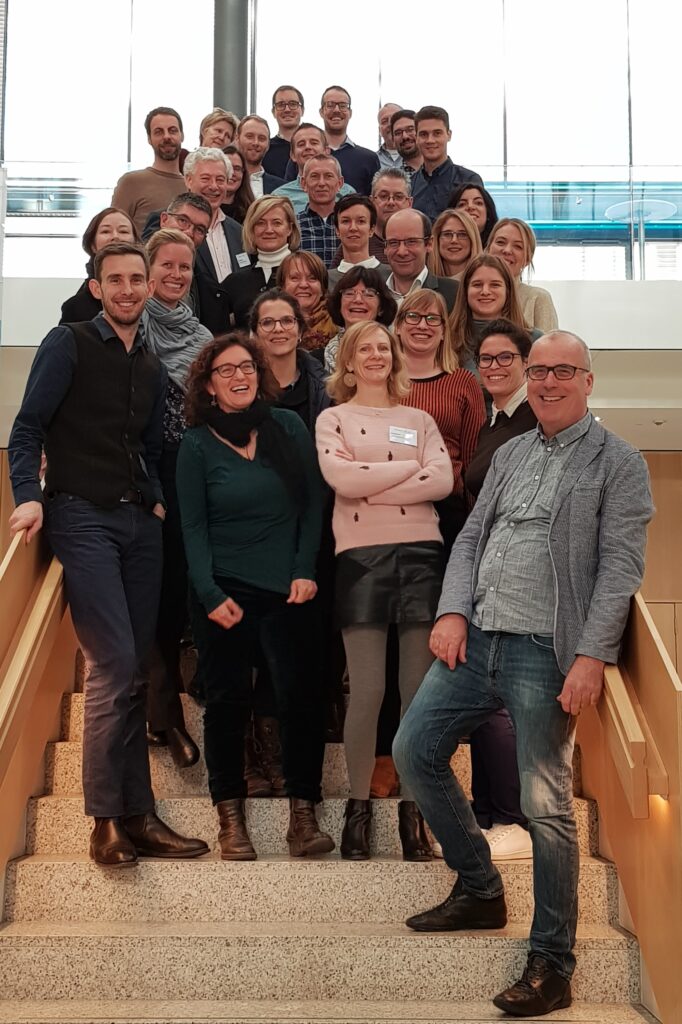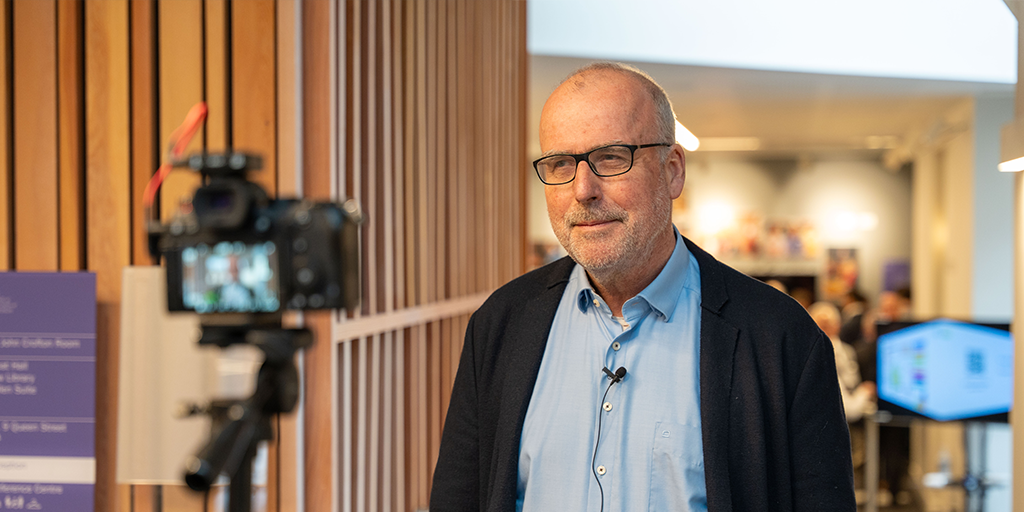The Mobilise-D Clinical Validation Study (CVS) represents a pioneering endeavour to integrate digital mobility outcomes (DMOs) into clinical trials and research. As the academic lead of the CVS, Prof. Becker’s insights are not just clinically informative but also a storyline of innovation, collaboration, and optimism.
The Beginning of a Game-Changer
In our interview, Prof. Becker began by recounting the early days of the Mobilise-D project. “We started with a vision: to make mobility a measurable and significant endpoint in clinical research and patient care”, he said. The project aimed to go beyond traditional metrics, leveraging digital mobility outcomes (DMOs) to show a full picture of patient health. From the outset, the team prioritized transparency and inclusivity. “What set us apart”, Prof. Becker noted, “was our commitment to involving clinical experts right from the beginning. It wasn’t just about researchers, engineers, and computer scientists; we had the clinicians on board, ensuring our work was relevant and applicable.” Another significant achievement was connecting the collective expertise across Europe, which was instrumental in the project’s success.

First Disease Insights and Patient Participation
One of the first major achievements of the study was understanding how mobility is perceived by the various participants in the study. For Parkinson’s Disease (PD), the Mobilise-D study data has provided valuable insights into the early stages of the disease, which is crucial for developing new disease-modifying drugs. “I think that is a major achievement and the clinical achievement is that soon the clinicians could introduce the digital mobility outcomes for clinical monitoring for PD patients. So, if you change the medication or if we start a new medication, we can look at the real-world conditions, if it makes a difference or not”, revealed Prof. Becker.
For Chronic Obstructive Pulmonary Disease (COPD), the study revealed that mobility is about more than just counting steps. “Walking distance and spatial parameters,” he shared, “are crucial for reflecting a patient’s ability to perform daily activities and maintain social participation. It’s about quality of life, not just numbers.”
In the context of Multiple Sclerosis (MS), Prof. Becker mentioned that many traditional metrics are outdated and often irrelevant to patient experiences. “DMOs offer a more accurate reflection of real-world walking performance, which is essential for modifying treatments.” For patients recovering from a hip fracture, he continues unveiling the discoveries. “Mobilise-D was the first global effort to monitor recovery right from the operation. We found that recovery trajectories could be significantly modified, which has profound implications for physiotherapy and rehabilitation.”
The study highlighted the importance of including patient perceptions in clinical outcomes, such as perceived walking safety, the effort required to walk, the social aspect of walking, as well as the individual needs and motivation, which all are crucial for tailoring individual treatment plans.
When talking about challenges with including the patient voice, he pointed out that some of the diseases such as PD or MS have strong patient organisations, which is not always the case for other diseases, especially in conditions such as hip fractures where patients are typically older and less organized into advocacy groups. This highlights the need for a stronger patient support system.
Societal and Healthcare Integration: Overcoming Barriers
Prof. Becker frankly discussed the challenges of costs when implementing DMOs at a large scale. “Current costs of measurement and analysis are too high for widespread use”, he said. “We need to bring these costs down by 80-90% to make it feasible for millions of patients.” There is a need for strong industrial partners that can take the development of sensors further in a faster and more cost-efficient way. The SMEs that are now providing these types of sensors are well equipped for clinical trials with restricted numbers of patients but for large-scale expansion, they would need much more.

He also highlighted the need for better data processing and data visualization: “We need to streamline these processes through automation and machine learning. And making data accessible and useful for both clinicians and patients is crucial. It facilitates better decision-making and care.”
He emphasized the importance of societal acceptance and healthcare integration. Currently, healthcare systems are more focused on preventing costly medical events than on improving mobility, which poses a challenge for integrating DMOs. Regardless of the type of healthcare system, the challenge will be the same in scaling up: “For the moment it is not seen as a treatment, even though mobility and the independence of walking are seen as important for patients and society. Engaging with policymakers and health economists is crucial to highlight the societal benefits of improved mobility and push for supportive policies that recognize and fund these improvements.”
Looking Ahead
As the conversation drew to a close, Prof. Becker’s optimism for the future was powerful. “The findings from the Mobilise-D CVS have laid a strong foundation”, he said. “We can use the DMOs and combine them with other studies and data such as longitudinal data or epidemiological data, to implement them as routine in the clinical practice.”
Prof. Becker’s vision extends beyond the technical aspects, and he wishes for stronger patient and clinician education on the value of using health technologies, various digital measures, and new devices to drive demand and acceptance within the healthcare system.
He envisions a future where collaborative networks and international partnerships play a vital role. “We need to bring together diverse expertise, including social scientists and health economists, to address gaps in understanding and future implementation.”
A New Era of Patient Care
In his closing remarks, Prof. Becker captured the essence of the Mobilise-D project. “It is about more than just metrics”, he said. “It’s about improving lives. The journey ahead is promising, and with continued innovation and collaboration, we can achieve significant advancements in healthcare.”


